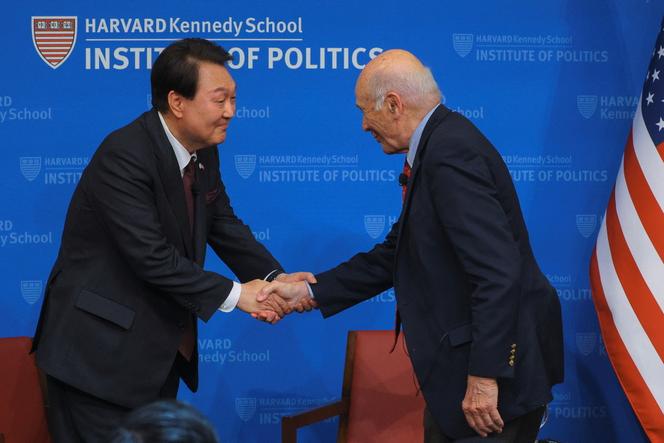

It is one of history's striking ironies. Joseph S. Nye, the brilliant American theorist of international relations who fathered the concept of soft power – defined as "the ability to obtain preferred outcomes by attraction and persuasion rather than coercion or payment," died on Tuesday, May 6, just as the US president is determined to dismantle everything his country has built in terms of soft power over the past eight decades.
In 100 days, Donald Trump has inflicted more damage to the United States' image and influence than in the four years of his first term. On the suggestion of billionaire Elon Musk, he has dismantled the federal development aid agency USAID, condemning vital programs for health, education and civil society worldwide to disappear. By attacking American universities, media and the judicial system, he trampled on the very principles the US has traditionally used to promote the democratic model.

By mistreating allies and cracking down on immigrants, he destroyed the legend established by President Ronald Reagan: that of "the shining city on the hill," the ideal that attracted pilgrims to America's shores and served as a compass for the free world during the Cold War. Today, Trump has no interest in seduction or influence; for him, power is exercised only through intimidation, deals or force.
However, there are still advocates of soft power in the US ready to fight for a different vision of the world. Another billionaire, Bill Gates, has recently offered a striking contrast to Trump's method. Like Musk, he comes from the tech sector, but for the past 25 years, he has chosen to devote the immense fortune generated by Microsoft to the American philanthropic tradition, through the Gates Foundation (a partner of Le Monde Afrique), which plays a crucial role in public health in Africa. Gates has always maintained that private philanthropy can only complement, not replace, public development aid.
But as wealthy countries cut development aid, Gates has had to redirect his strategy. He is not among Trump's circle of oligarchs; his ideas on science, climate and humanity are the opposite of the president's. He does not accept that "the world's richest man" – Musk – could, by deciding to end aid programs, be "causing death for the world's poorest children." On Thursday, May 8, he announced his decision to dedicate 99% of his fortune, that is $108 billion, to the Gates Foundation over the next 20 years, aiming to maximize its effects and to close the foundation in 2045. A few days earlier, Warren Buffett, a 94-year-old billionaire who has donated half of his fortune to the Gates Foundation, retired, proclaiming that "trade should not be a weapon."
Gates is the same age, 69, as Pope Leo XIV, elected on May 8, the day the philanthropic billionaire made his announcement. Incidentally, this pope is also American, is also oriented toward the world beyond the US, and shares the same sense of responsibility of wealthy nations. The two men probably do not know each other. But, each in their own way, they both embody the defense of soft power so well described by Nye.
Translation of an original article published in French on lemonde.fr; the publisher may only be liable for the French version.
